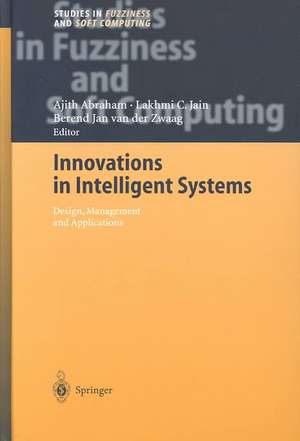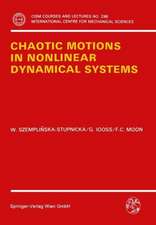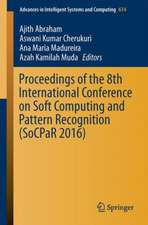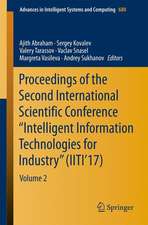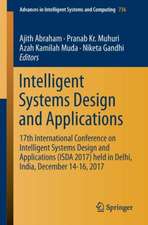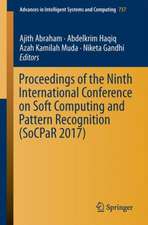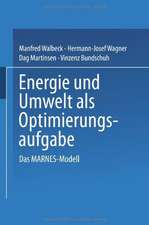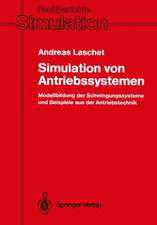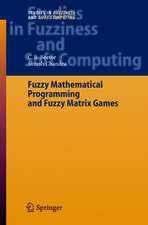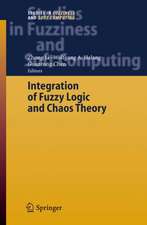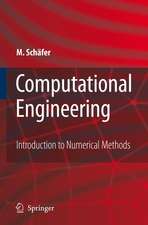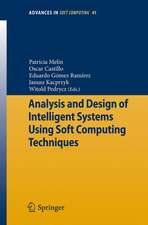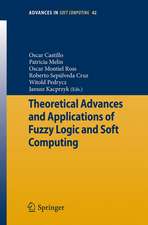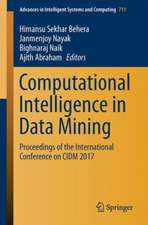Innovations in Intelligent Systems: Studies in Fuzziness and Soft Computing, cartea 140
Editat de Ajith Abraham, Berend Jan van der Zwaagen Limba Engleză Hardback – 21 ian 2004
| Toate formatele și edițiile | Preț | Express |
|---|---|---|
| Paperback (1) | 800.97 lei 39-44 zile | |
| Springer Berlin, Heidelberg – 5 dec 2010 | 800.97 lei 39-44 zile | |
| Hardback (1) | 965.34 lei 6-8 săpt. | |
| Springer Berlin, Heidelberg – 21 ian 2004 | 965.34 lei 6-8 săpt. |
Din seria Studies in Fuzziness and Soft Computing
- 20%
 Preț: 999.85 lei
Preț: 999.85 lei - 20%
 Preț: 653.06 lei
Preț: 653.06 lei - 20%
 Preț: 872.98 lei
Preț: 872.98 lei - 20%
 Preț: 930.57 lei
Preț: 930.57 lei - 20%
 Preț: 1051.00 lei
Preț: 1051.00 lei - 20%
 Preț: 992.44 lei
Preț: 992.44 lei - 20%
 Preț: 655.85 lei
Preț: 655.85 lei - 20%
 Preț: 1001.86 lei
Preț: 1001.86 lei - 18%
 Preț: 954.14 lei
Preț: 954.14 lei - 20%
 Preț: 330.10 lei
Preț: 330.10 lei - 20%
 Preț: 333.04 lei
Preț: 333.04 lei - 20%
 Preț: 997.56 lei
Preț: 997.56 lei -
 Preț: 391.61 lei
Preț: 391.61 lei - 20%
 Preț: 647.79 lei
Preț: 647.79 lei - 20%
 Preț: 986.01 lei
Preț: 986.01 lei - 18%
 Preț: 958.56 lei
Preț: 958.56 lei - 20%
 Preț: 996.40 lei
Preț: 996.40 lei - 20%
 Preț: 999.35 lei
Preț: 999.35 lei - 15%
 Preț: 646.43 lei
Preț: 646.43 lei - 20%
 Preț: 651.57 lei
Preț: 651.57 lei - 20%
 Preț: 997.89 lei
Preț: 997.89 lei - 15%
 Preț: 641.03 lei
Preț: 641.03 lei - 20%
 Preț: 1009.74 lei
Preț: 1009.74 lei - 20%
 Preț: 992.62 lei
Preț: 992.62 lei -
 Preț: 388.72 lei
Preț: 388.72 lei - 18%
 Preț: 1223.43 lei
Preț: 1223.43 lei - 20%
 Preț: 651.42 lei
Preț: 651.42 lei - 18%
 Preț: 951.59 lei
Preț: 951.59 lei - 18%
 Preț: 948.61 lei
Preț: 948.61 lei
Preț: 965.34 lei
Preț vechi: 1177.24 lei
-18% Nou
Puncte Express: 1448
Preț estimativ în valută:
184.72€ • 197.53$ • 154.01£
184.72€ • 197.53$ • 154.01£
Carte tipărită la comandă
Livrare economică 17 aprilie-01 mai
Preluare comenzi: 021 569.72.76
Specificații
ISBN-13: 9783540202653
ISBN-10: 354020265X
Pagini: 496
Ilustrații: XXV, 468 p. 16 illus., 6 illus. in color.
Dimensiuni: 155 x 235 x 36 mm
Greutate: 1.02 kg
Ediția:2004
Editura: Springer Berlin, Heidelberg
Colecția Springer
Seria Studies in Fuzziness and Soft Computing
Locul publicării:Berlin, Heidelberg, Germany
ISBN-10: 354020265X
Pagini: 496
Ilustrații: XXV, 468 p. 16 illus., 6 illus. in color.
Dimensiuni: 155 x 235 x 36 mm
Greutate: 1.02 kg
Ediția:2004
Editura: Springer Berlin, Heidelberg
Colecția Springer
Seria Studies in Fuzziness and Soft Computing
Locul publicării:Berlin, Heidelberg, Germany
Public țintă
ResearchCuprins
1 Theory.- 1. Use of multi-category proximal SVM for data set reduction.- 2. Bayesian control of dynamic systems.- 3. AppART: a hybrid neural network based on adaptive resonance theory for universal function approximation.- 4. An algorithmic approach to the main concepts of rough set theory.- 5. Automated case selection from databases using similarity-based rough approximation.- 6. An induction algorithm with selection significance based on a fuzzy derivative.- 7. Model and fixpoint semantics for fuzzy disjunctive programs with weak similarity.- 8. An automated report generation tool for the data understanding phase.- 9. Finding trigonometric identities with tree adjunct grammar guided genetic programming.- 2 Applications.- 10. Modeling a distributed knowledge management for autonomous cooperative agents with knowledge migration.- 11. Intelligent information systems based on paraconsistent logic programs.- 12. Neuro-fuzzy paradigms for intelligent energy management.- 13. Information space optimization for inductive learning.- 14. Detecting, tracking, and classifying human movement using active contour models and neural networks.- 15. Fuzzy sets in investigation of human cognition processes.- 16. A full explanation facility for an MLP network that classifies low-back-pain patients and for predicting MLP reliability.- 17. Automatic translation to controlled medical vocabularies.- 18. A genetic programming for the induction of natural language parser.- List of contributors.
Textul de pe ultima copertă
Innovations in Intelligent Systems is a rare collection of the latest developments in intelligent paradigms such as knowledge-based systems, computational intelligence and hybrid combinations as well as practical applications in engineering, science, business and commerce. The book covers central topics such as intelligent multi-agent systems, data mining, case-based reasoning, and rough sets. Essential techniques to the development of intelligent machines are investigated such as pattern recognition and classification, machine learning, natural language processing, grammar, evolutionary schemes, fuzzy-neural procedures, and intelligent vision. The book also includes useful applications ranging from medical diagnosis and technical/medical language translation, to power demand forecasting and manufacturing plants. Due to its depth and breadth of the coverage and the usefulness of the techniques and applications, this book is a valuable reference for experts and students alike.
Caracteristici
Latest developments in intelligent paradigms and practical interesting applications State of the art in building 'thinking' machines and improving our understanding of intelligence
